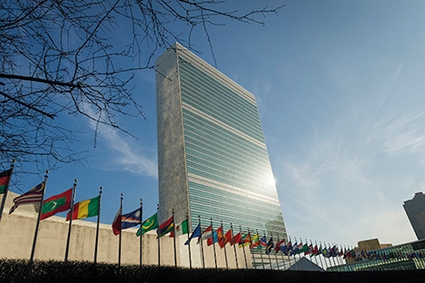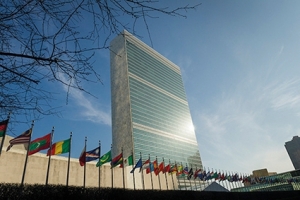Why International Law Will Never Recognize South Ossetia or Catalonia
After the USSR started collapsing in 1989, the Georgian people asked for independence, including the Abkhazian and South Ossetian (Tskhinvali region) territories. Abkhazians feared a “Georgianization” and the loss of autonomy. As a result, they claimed their independence in July 1992. Few states have recognized the breakaway Abkhazia or “South Ossetia” as independent and sovereign countries. Among them is Russia, which did so following the August war in 2008. But still now international law considers these de facto republics a part of Georgia, creating a conundrum regarding the law; states which do not exist.
In fact, Abkhazia and “South Ossetia” are not the only grey zones of this kind. The so-called Republic of Kosovo, Transnistria, Crimea, Eastern Ukraine and also Palestine are facing the same situation.
While separatism is gaining ground in Europe, the question is: Can unilateral European separatism lead to something positive for the breakaway regions? The answer seems to be no. Economically, an unrecognized state will be held back in its development. In the case of Catalonia, which wants to be independent, the risk is custodies and embargos, which could mean less tourism when tourism makes up more than 12% of its GDP. Regarding the Transnistria, Abkhazia and South Ossetia de facto republics, more than a half of the GDP comes from Russia. That means that for decade(s), the “states” have not been economically viable. However, independence can be the best way to affirm its culture, language and any other differences, all the more if the country in which the region was a part of was strongly opposed to diversity. It is seen that through independency, activists get to apply the right to self-determination.
The use of the term “European Separatism” is not innocuous. In international law, in particular the New York Pact introduction, or the United Nation Charter 1st Article state that, “All peoples have the right of self-determination.” Breakaway regions and separatist movements rely on it. But, and there is a “but,” in international law, territories are “considered occupied when [they are] actually placed under the authority of a hostile army,” for instance, colonized peoples may be supported and recognized in their reach for independence. But Catalonia is not occupied and nor are Abkhazia or “South Ossetia.” The OSCE, the EU, and the UN argue that Abkhazia, like “South Ossetia,” is under the rule of Georgia and therefore they support self-determination, i.e. a vote on independence BUT supervised by Georgia AND only when Georgian refugees are allowed back to their homes in the regions. Why? Because according to international law, Abkhazia is still a part of Georgia.
That is the reason, if we take a look at Kosovo, “South Ossetia”, Abkhazia, and Karabakh, or more recently Crimea and the de facto Donetsk and Luhansk republics, these entities, at first sight, gather the three criteria of a State generally recognized by international law: A people, a territory, a government. Transnistria even uses its own currency. Furthermore, applying the right to self-determination, in 1991, a referendum with 78% of voters resulted in 97.7% in favor of independence there. But Transnistria still is a State which does not exist. Theses de facto states are mostly unrecognized by international law for their lack of independency regarding Russia or Armenia and/or due to the unilaterality of the independence.
However, while international law does not recognize them, some countries do. “South Ossetia” has been recognized by the Russian Federation, Nicaragua, Venezuala, Syria and Nauru. Additionally, Russia signed a Friendship Agreement with the two de facto republics on Georgian territory. Such legal acts are strong, and blur the situation. According to the Encyclopedia of Public International Law, 2000, “A treaty is a consensual agreement between two or more subjects of international law intended to be and considered by the parties as binding and containing rules of conduct under international law for at least one (normally for all) of the parties.” So, in the case of agreements between Abkhazia and Russia, the agreement is not valid regarding the law, but both partners apply it correctly. In the case of Crimea, Russia is a UN-member, has administratively integrated Crimea to the Federation but is considered an annexation not valid in international law. Even international organizations blur the situation and avoid the law. Kosovo is recognized by 116 UN-member states (in 2017, former Georgian Prime Minister Giorgi Kvirikashvili said that Georgia maintains the position not to recognize the unilaterally declared independence of Kosovo), and is an observer, like Palestine, in the United Nations … which is a form of recognition. But Kosovo and Palestine are particular due to the context of their independence, war inside the country, and an old conundrum in the Middle East.
In 2009, the EU Independent International Fact-Finding Mission on the Conflict in Georgia reported that Abkhazia was a “state-like entity” while “South Ossetia” had nearly reached statehood but was still too close to Russia. At the end of the day, the secession of “South Ossetia” and Abkhazia was not related to a colonial situation or foreign domination, even if the Georgian military actions lead by Georgian forces against Tskhinvali in 2008 were considered illegal in the eyes of international law and human rights. Therefore, international law will never recognize their sovereignty, at least as long as few countries recognize them as states.
Actually, two cases are officially grey zones, but partially recognized in fact by international organizations: Kosovo, and Palestine. Kosovo is recognized by 116 UN-members, Palestine by 135. In the meantime, Transnistria is recognized by no-one, the de facto Abkhazian government by 7, the de facto South Ossetia republic by 5, Crimea by 5 and the de facto Eastern Ukraine republics by no one. Here is the difference. Alejandro Dorado Najera, a freelance international relations consultant, said that Carles Puigdemont, the leader of the Catalan independence, and other independentists use the right to self-determination incorrectly. “If they were right in their interpretation of the law (any territory with a different history, tongue, and culture should be authorized to claim independence by the Right to Self-determination), “South Ossetia,” Abkhazia and Crimea would be recognized by international organizations, but they are not!” he said. Catalonia should take a leaf out of the Georgian book to understand that they misinterpreted international law.
By Antoine Dewaest












